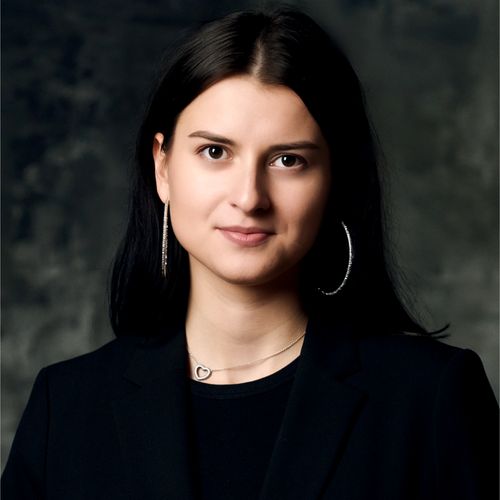While President Zelenskyy was preparing for the Normandy Four Summit in Paris, the media space was overwhelmed by “the red lines” discussion. Three TV channels – “Priamyi”, “Espresso” and “5 Kanal” – organized a joint marathon talk show attended by ex-president Petro Poroshenko as a special guest. He was giving advice and warnings, evaluated possible betrayals, and repeatedly emphasized his victories.
How victorious are these victories? Are we already betrayed? Read to find out.
True
“Regarding our Stockholm arbitration claim… 4.5 billion US dollars – this is a result of our win from the Russian Federation – made possible due to our directives – for the proceedings between NJSC Naftogaz and PJSC Gazprom. Now, one more a 12 billion claim has been prepared to be filed.”
Petro Poroshenko, 06/12/2019 (25:36- 25:58)
According to the Stockholm arbitration decision, Gazprom was obliged to pay $4.63 billion to Naftogaz. $2.1 billion has been covered by the earlier supplied gas. $2.56 billion Gazprom is yet to pay.
Naftogaz has prepared one more claim for $12 billion.
True
“And now I am going to say something that nobody has noticed yet. For the first time in 5 years, the NATO summit declaration does not contain the message about Russian aggression in Ukraine. There is not a word about that. <…> During the last five years, the mention has been there, but now there is nothing. There is no declared stance of NATO on the illegal annexation of Crimea. Why has it been there all these years, and now there is nothing?”
Petro Poroshenko, 06/12/2019 (39:15- 39:37; 39:47 – 40:04)
Indeed, the NATO summits declarations did mention the Russian aggression in Ukraine and the illegal annexation of Crimea during the last five years (2014, 2016, 2018).
There was no joint declaration of the meeting participants after the 2017 Brussels summit.
Nevertheless, the NATO Secretary-General Jens Stoltenberg spoke about the Russian aggression and the illegal annexation of Crimea, answering the journalists’ questions at the press conference. The London summit declaration (3-4 December 2019) does not mention Ukraine at all.
Manipulation
“The army was non-existent in 2014. Now, in 2019, our army is one of the strongest in Europe.”
Petro Poroshenko, 06/12/2019 (17:32 – 17:39)
Comparing with 2014, the Ukrainian Army did become stronger. However, there is no reputable rating comparing strength of various armies.
It is not the first time that Petro Poroshenko refers to the Global Firepower Index. And we again emphasize that the methodology of this rating is not transparent. There is no information about the sources of data, the methods of calculations, and the experts engaged at their web site.
However, even if we use this rating, in 2014, Ukraine had a higher position among the European countries than in 2019:
The reputable defense research centers, such as the International Institute for Strategic Studies and the Stockholm International Peace Research Institute, do not publish ratings which compare the strengths of armies. The former provides the data about expenditures for defense, the quantities of armed forces and reserves, and the armaments available. The latter conducts research into the international arms transfers and the military expenditures.
Manipulation
“International Court of Justice, ICJ, United Nations. There was no precedent of suing the countries there unless the country itself agrees to it. We used the Convention for the Suppression of the Financing of Terrorism, which Russia had signed, and the Convention on the Elimination of Racial Discrimination. So, Russia will be held responsible for financing the LPR-DPR terrorist organizations and for persecuting Ukrainian Crimean Tatars in Crimea. The UN International Court of Justice has accepted this case, and Russia will be held responsible for that.”
Petro Poroshenko, 06/12/2019 (26:21- 27:01)
The UN International Court of Justice was established to deal with the disputes among the UN member states and the states acceding to the Statute of the UN International Court.
There is no need to get the state’s consent to file the lawsuit against this state. This concerns almost every state of the world, as almost all countries are either the UN members or accede to the Statute of the UN International Court of Justice.
The UN International Court of Justice has, indeed, accepted this trial case for consideration, but it is too early to say that Russia will be held responsible. One needs to wait for the final resolution.
Even if the Court will rule in favor of Ukraine, the implementation of the resolution is not an easy task, which is the main problem.
If a state fails to perform the resolution of the International Court of Justice, the case is redirected to the UN Security Council (UNSC). The latter can impose sanctions against the state or use other means to enforce the decisions of the Court. However, the veto power allows Russia to block the decisions of the Council and to avoid responsibility for non-performing its obligations.
There is already a precedent case of Nicaragua vs. the US, where the US vetoed the UNSC resolution, which obliged the USA to pay compensation to Nicaragua as settled by the Court.
False
“Failure to implement the Minsk agreements was the reason for the world to impose sanctions against Russia.”
Petro Poroshenko, 06/12/2019 (35:57 – 36:06)
The sanctions against Russia were imposed in March 2014 (e.g., the US and the EU). It was before the signature of the Minsk agreements (September 2014 and February 2015). The reasons for the sanctions were the undermining of or threat to the state sovereignty of Ukraine through the Crimea annexation, as well as destabilization of the situation in the east of Ukraine.
One should not perceive the sanctions as something holistic. It is a set of different measures of various countries or supranational entities regarding Russia. One may trace the link between sanctions and Minsk agreements back to the EU’s economic sanctions enacted in March 2015. The EU expected that Minsk would work by the end of 2015. Linking the sanctions and the implementation of the agreements were supposed to put more pressure on Russia. Since the agreements have not been implemented, the economic sanctions are prolonged every six months. They are currently in effect until January 31, 2020.
False
“I think that Zelenskyy was misinformed about NATO. At first, he was told that there was no NATO summit to be held, that there was a kind of an anniversary meeting instead. It was not true. It was the NATO summit. As for the recent NATO summits, Ukraine was always there. The Ukrainian president was always there.”
Petro Poroshenko, 06/12/2019 (37:42 – 38:06)
The Ukrainian president was not present at all recent NATO summits.
Poroshenko was present at three out of four NATO summits held during his presidency: in Wales in 2014, in Warsaw in 2016, in Brussels in 2018. President Poroshenko did not attend the 2017 Brussels summit.
The 30th-anniversary meeting of NATO states leaders rimed to the 70th-anniversary of NATO was held on 3-4 December in the suburb of London. Mr. Prystaiko, the Minister of Foreign Affairs, represented Ukraine at the summit. VoxCheck does not comment on Mr. Zelenskyy’s absence at the London summit.
Manipulation
“I would like to remind you that we have submitted the draft statement of Verkhovna Rada on the NATO membership action plan. It is not just a reiteration of our application, but a proposal to sign a bilateral agreement. Ukraine takes an obligation to implement the necessary reforms, and the most important is that NATO takes the obligation to accept Ukraine.”
Petro Poroshenko, 06/12/2019 (38:18 – 38:41)
European Solidarity parliamentarians are the authors of the statement “On the Priority Measures to Secure the Euro-Atlantic Integration of Ukraine – Acquiring the Fully-Fledged Membership of Ukraine in the North Atlantic Treaty Organization”.
However, there is no bilateral agreement mentioned, either in the first draft document or in the adopted text. Moreover, NATO is not supposed to take any obligations under this document. The approved statement’s essential goal is to call the NATO member countries’ parliaments and ministers to accelerate providing the MAP to Ukraine.
True
“It was a shock for Putin that the European Union, then, it was 27 member states, have unanimously voted for the implementation of the sanctions.”
Petro Poroshenko, 06/12/2019 (45:30 – 45:41)
The sanctions belong to the category of issues that require unanimous approval of the EU member states. If not all countries have voted in favor, the sanctions would not have been imposed.
By the way, at the time of the voting for the imposition of the sanctions, the EU had 28 members, not 27. Croatia was the latest EU joining country (July 2013), and Great Britain started the Brexit in March 2017.
VoxCheck does not comment on Putin’s response to the implementation of the sanctions.
True
“I want to remind you of 1997, or maybe 1996. How it happened that the Black Sea Fleet stayed in Sevastopol for 25 years. Gas is the answer, the Ukrainian gas debt. To pay the gas debt, they have left the Black Sea Fleet base for 25 years.”
Petro Poroshenko, 06/12/2019 (46:25 – 46:52)
The debt of Ukraine to Russia was restructured in the form of a credit loan in 1993. The debt was partially for the products supplied by Russia to Ukraine. First of all, these were energy carriers (page 156). According to the 1993 agreement, Ukraine had to repay the loan till 1999, which was problematic. So, after the debt restructuring in 1995, the term of the final repayment was postponed till 2007.
In 1997, Ukraine and Russia agreed that the Russian Black Sea fleet would be staying in Crimea for 20 years (the speaker says 25 years, which is incorrect). At that very day, Ukraine and Russia agreed that the Ukrainian debt, including the debt for gas, would be paid by leasing the territories to Russia for its Black Sea fleet.
VoxCheck does not assess whether Ukraine had any chance to avoid signing such a “package agreement”.
Attention
The authors do not work for, consult to, own shares in or receive funding from any company or organization that would benefit from this article, and have no relevant affiliations




